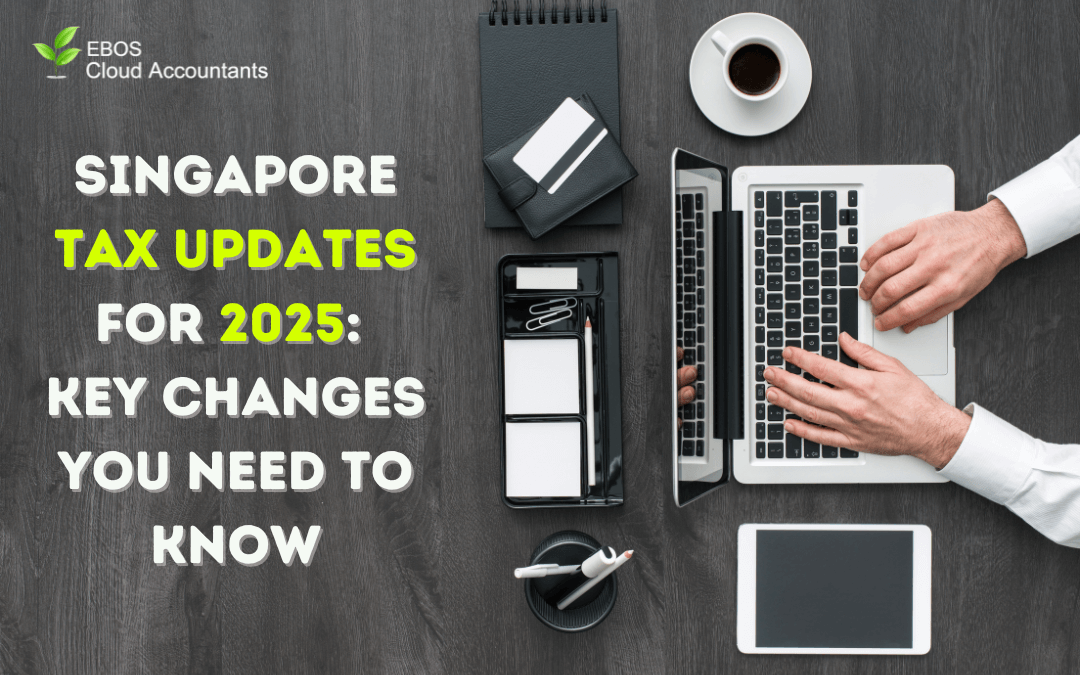As we step into 2025, Singapore’s tax landscape has undergone several important updates. These changes reflect the government’s ongoing commitment to maintaining a competitive and equitable tax system while addressing economic and social needs. Here’s a breakdown of the key updates for individuals, businesses, and investors in 2025.
1. Personal Income Tax Updates
Revised Tax Rates for High Earners
Starting from YA 2025, individuals earning more than SGD 500,000 annually will see a marginal increase in their income tax rates. This adjustment targets high-income earners to promote greater income equity.
Enhanced Tax Reliefs
The government has introduced higher tax relief caps for CPF contributions and dependent-related deductions. These changes aim to support families and encourage retirement savings.
2. Corporate Tax Updates
Minimum Effective Tax Rate (METR)
Aligned with global efforts to establish a fair tax system, Singapore has introduced a 15% METR for large multinational enterprises (MNEs) operating within the country. This complies with the OECD’s Base Erosion and Profit Shifting (BEPS 2.0) framework.
Extended Tax Incentives
The Productivity Solutions Grant (PSG) and other business tax incentives have been extended through 2025 to encourage innovation and digital transformation among SMEs.
3. Goods and Services Tax (GST)
GST Rate Adjustment
The GST rate has increased from 8% to 9% starting January 1, 2025. This marks the final phase of the GST hike announced in earlier budgets. To offset the impact on households, the government continues to roll out GST vouchers and additional financial support for lower-income groups.
4. Property Tax Revisions
Higher Tax for Luxury Homes
Owners of high-value residential properties will face increased property tax rates. This adjustment reflects the government’s effort to curb wealth inequality and stabilize the property market.
Green Building Incentives
Tax rebates are now available for property owners who invest in sustainable building upgrades, aligning with Singapore’s green initiatives.
5. Digital and Crypto Taxation
Tax on Digital Assets
Digital asset transactions, including cryptocurrency trading and NFT sales, are now subject to clearer tax guidelines. Gains from such transactions may be classified as income and taxed accordingly, depending on the nature of the activity.
E-Invoicing Mandate
From 2025, businesses must adopt the nationwide e-invoicing system for improved tax compliance and efficiency.
6. Tax Compliance Enhancements
Simplified Filing for Individuals
The IRAS has streamlined the tax filing process for most individuals through enhanced pre-filled forms and auto-inclusion initiatives.
Stricter Penalties for Non-Compliance
Non-compliance with tax regulations, including underreporting income or late submissions, will attract higher penalties in 2025.
Preparing for 2025
To adapt to these changes, individuals and businesses should:
- Review their financial plans and assess the impact of revised tax rates.
- Explore available tax reliefs and incentives to optimize their tax position.
- Ensure compliance with new regulations, such as e-invoicing and digital asset taxation.
By staying informed and proactive, taxpayers in Singapore can navigate these updates effectively and continue to benefit from a robust and transparent tax system.
Check out our website at https://ebos-sg.com/ to explore more articles and discover how our Cloud Accountant Services can support you on your business.







